General Motors and Hyundai Motor Co. will jointly develop give vehicle, including an all-electric van, the two automakers revealed, marking the first concrete steps in an alliance announced last September. The program primarily will target the Latin American market where both automakers are struggling to beat back a push by emerging Chinese competitors. But the van will be sold in the U.S. More from Headlight.News.

GM CEO and Chair Mary Barra and her Hyundai counterpart Eusun Chung signed an MoU last September leading to the product development project.
Following up on the agreement first inked in September 2024, Hyundai Motor Co. and General Motors plan to develop five vehicles together, a move they hope will give them a better competitive stance against increasingly aggressive Chinese domestic competitors.
An all-electric van will be introduced into the U.S. market by 2028, the partners noted. The other four products, a compact SUV, a sedan and two pickups, will be aimed at central and South America.
“Hyundai’s strategic collaboration with GM will help us continue to deliver value and choice to our customers across multiple vehicle segments and markets,” said José Muñoz, President and CEO of Hyundai Motor Company. “Our combined scale in North and South America helps us to more efficiently provide our customers more of what they want – beautifully designed, high-quality, safety focused vehicles with technology they appreciate.”
Increasing competitiveness, reducing costs
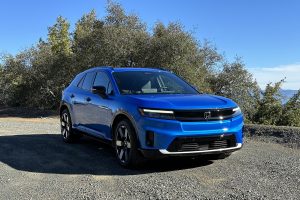
GM is winding down an alliance with Honda that saw it take lead in the development of EVs including the Japanese automaker’s Prologue SUV.
When the two automakers signed a Memorandum of Understanding, or MoU, last September it marked the first time Hyundai agreed to team up with an erstwhile competitor outside the Chinese market where government regulations require foreign manufacturers pair with local auto companies.
General Motors, on the other hand, has had a long history of strategic alliances. The Hyundai deal came at a time when it had begun winding down a series of joint ventures with Honda. GM still produces two EVs for the Japanese automaker, and they jointly assemble hydrogen fuel cells at a suburban Detroit plant.
It’s not unusual for such partnerships to phase out over time. But experts believe they can be particularly important today considering several factors, such as the need to invest heavily in new technologies like EVs and autonomous vehicles. There’s also the challenge posed by the emerging Chinese automakers who have rapidly gained share in markets including Latin America.
Dividing things up
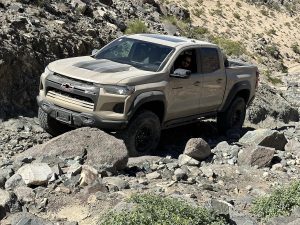
GM will take lead in developing two pickups using the midsize platform underpinning the rugged Chevrolet Colorado.
“GM and Hyundai have complementary strengths and talented teams. Our goal is to unlock the scale and creativity of both companies to deliver even more competitive vehicles to customers faster and more efficiently,” said GM CEO Barra after meeting with her counterpart, Hyundai Motor Group Executive Chair Euisun Chung, in New York City. Last September.
Work has already begun on the vehicles set to emerge from the GM-Hyundai joint venture, each automaker taking on the lead where they have a particular strength:
- The Detroit automaker will be primarily responsible for products based off its existing midsize truck platform, the SUV and two pickups;
- Hyundai will oversee development of the compact sedan and battery-electric van.
All of the new models are expected to be on sale by around 2028 and production capacity is targeted to run as high as 800,000 vehicles annually.
More Auto News
- GM, Hyundai Announce Potentially Far-Reaching Alliance
- UAW Pres. Fain Faces Potential Ouster
- Shareholders Sue Tesla, Musk, Allege Fraud
Taking on the Chinese
The decision to target four products at Latin America didn’t appear to surprise several industry sources who spoke to Headlight.News on background.
Both Hyundai and GM are struggling in the Chinese market but are determined to push back as emerging carmakers like BYD, Geely and Xiaomi expand their reach in foreign markets. By working together, Hyundai and GM hope to slash product development and manufacturing costs, a critical move as the Chinese are using extremely low prices to build momentum in places like Mexico, Brazil and Argentina.
But whether this deal will be enough to level the playing field is uncertain. “Even if they sell those new models in South America, it’s hard to beat Chinese competitors which already are leading in the electric-vehicle market with low prices,” An Hyung-jin, chief investment officer at Seoul-based hedge fund Billionfold Asset Management, told Automotive News.
Electric Van
Only one product targeted by the new partners will be introduced into the U.S. market, and it could prove critical for both companies.
The van market has become increasingly strong in recent years, primarily in commercial sectors such as last-mile deliveries. GM does produce a line-up through its BrightDrop EV subsidiary but could use replacements for its conventionally-powered models, the ancient and out-of-date Chevrolet Express and GMC Savana.
Hyundai has no presence in the van market under its own badge in the U.S. market, though its sibling Kia brand does sell the Carnival minivan.

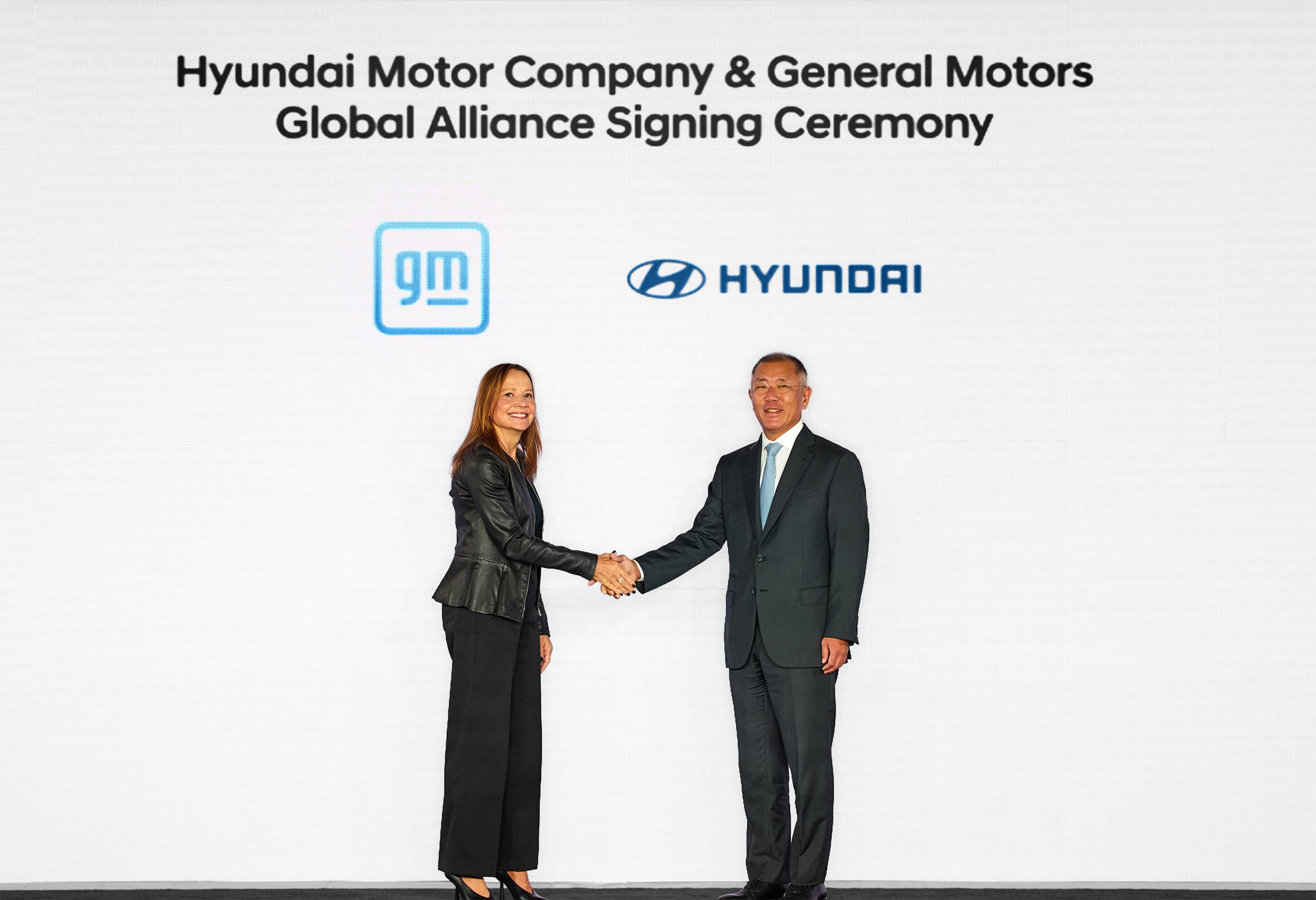
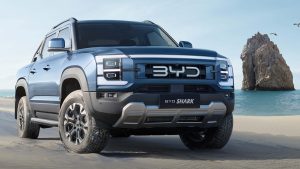



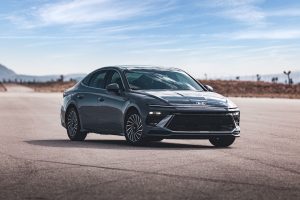
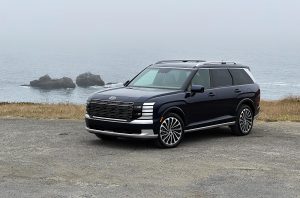
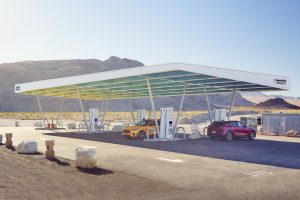
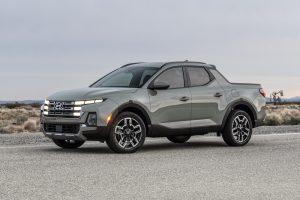
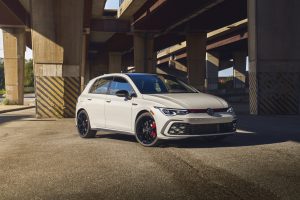


0 Comments